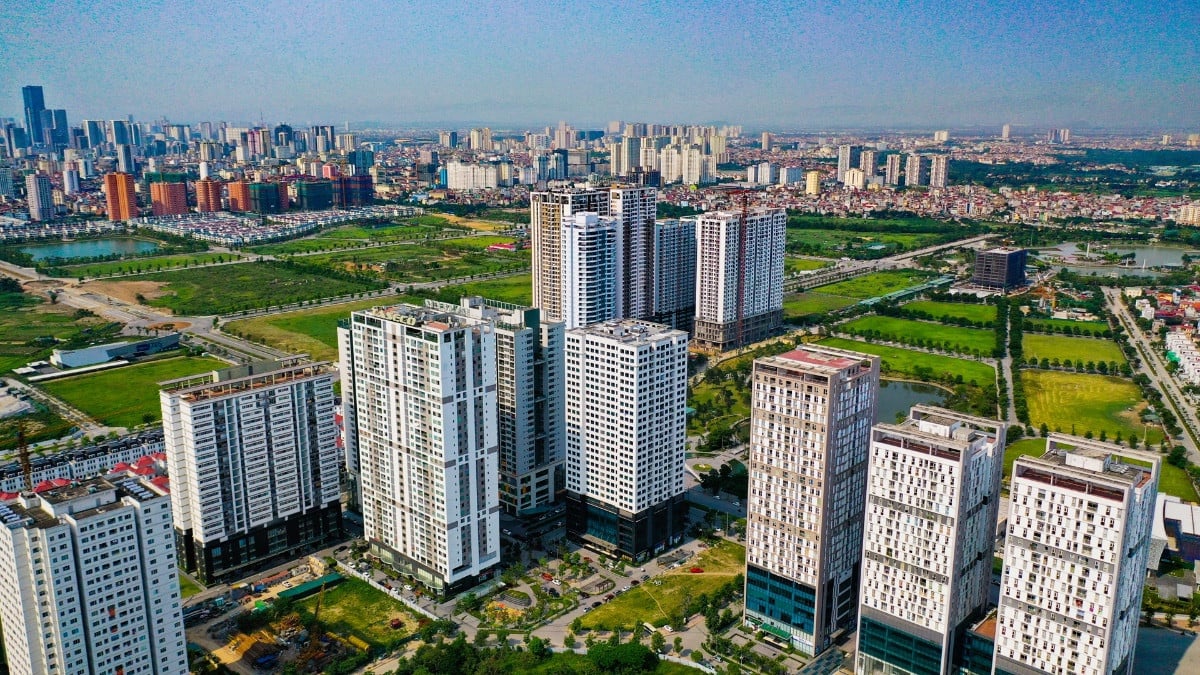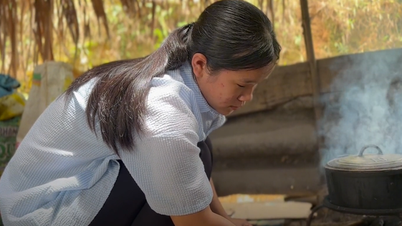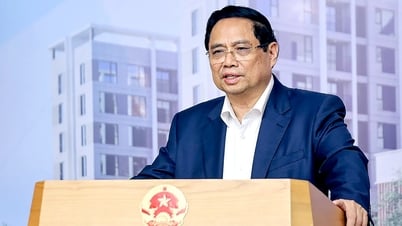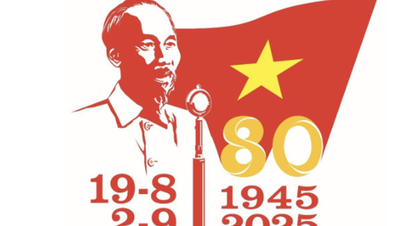Want to buy a house must have support from family
Sharing at the workshop “Effective financial leverage - Young people owning a house”, organized by Thanh Tra Newspaper on the morning of June 26, Mr. Ha Quang Hung, Deputy Director of the Department of Housing and Real Estate Market Management ( Ministry of Construction ) pointed out that to buy an average house (70m2, selling price 3-4 billion VND) in big cities, young people need 20-25 years of income. This figure shows that the house price/income ratio in Vietnam is very high.

Reality also shows that most young urban couples have an average income of 20-30 million VND/month, but very few buy a house without financial support from family or preferential credit programs.
The representative of the Ministry of Construction assessed that the limitation in real estate supply and the high housing prices compared to the affordability of the majority of people are due to the projects facing difficulties in investment procedures; slow investment preparation procedures and project implementation; businesses facing difficulties in credit capital, bond issuance and payment, sales, etc.
Mr. Ha Quang Hung admitted that banks are willing to lend money to buy houses, but commercial loan interest rates are still quite high and loan terms are not long enough to meet demand.
“Reality shows that only when there are preferential packages with low interest rates (5-6%) fixed in the beginning will young people boldly consider taking out a loan to buy a house. Young people really need long-term loans of 20-30 years to reduce the pressure of monthly debt repayment,” he analyzed.
Don't rush to buy a house if you can't afford to pay the debt.
Financial expert - Dr. Nguyen Tri Hieu recommends limiting the maximum loan ratio to 80% of the house value. This ratio helps keep leverage at a safe level, minimizing risks when the market or interest rates fluctuate.
“Don’t rush to buy a house if you don’t have the ability to pay off the debt,” Dr. Nguyen Tri Hieu emphasized.

“Young people should ensure that the total monthly debt payment (principal + interest) does not exceed 50% of their net income to avoid financial pressure. This is the Debt to Income ratio (Monthly bank debt payment to monthly income). The 50% threshold is accepted by many international financial institutions, while borrowers still have room to spend on essential needs,” he noted.
According to this expert, priority should be given to fixed-interest loan packages for as long as possible, at least the first 3-5 years or longer, to help plan stable cash flow and avoid the risk of sudden interest rate increases later.
In addition, it is necessary to reserve an emergency fund equivalent to 6-12 months of debt payments, in case of incidents such as job loss or reduced income. This fund helps borrowers maintain debt repayment obligations without having to sell assets.
An equally important note, according to Mr. Hieu, is that borrowers need to carefully calculate their ability to repay the debt before deciding to borrow from the bank to buy a house. Specifically, it is necessary to create a balance sheet, simulate income and interest rate scenarios, and avoid the FOMO mentality (fear of missing out) that leads to borrowing beyond one's capacity.
“Using financial leverage is a double-edged sword. If not well controlled, borrowers can easily fall into a spiral of debt, even having to sell their house when the market fluctuates or income decreases,” said Mr. Hieu.
Ms. Ha Thu Giang, Director of the Department of Credit for Economic Sectors, State Bank, informed that there are currently 9 banks participating in the 145,000 billion VND credit package, with interest rates 1.5-2% lower than the normal lending interest rate. According to Ms. Giang, the latest lending interest rate is 5.9%/year, and interest rates are continuously decreasing along with the general trend.
“For young people under 35 years old, the State Bank has preferential interest rates, 2% lower for the first 5 years, 1% lower for 10 years compared to the average medium and long-term interest rates of large banks,” said Ms. Giang.
Regarding solutions to develop social housing projects, the leader of the Department of Housing and Real Estate Market Management said that localities need to complete the social housing development targets according to Decision No. 444 of the Prime Minister and develop worker accommodation in industrial parks and housing for armed forces.
In addition, it is necessary to develop long-term rental and hire-purchase models, and at the same time provide financial support to buyers to increase accumulation capacity and reduce cost burden.
“A feasible solution is to adjust the personal income tax policy, increase the family deduction for people with families and young children; allow a portion of the interest on first-time home loans to be deducted from taxable income. This is similar to a form of indirect support, helping young people who borrow to buy a house to reduce the monthly financial pressure,” Mr. Hung stated.
Source: https://vietnamnet.vn/mua-nha-3-den-4-ty-nguoi-tre-can-tich-cop-20-25-nam-2415302.html


![[Photo] National Assembly Chairman Tran Thanh Man attends the program "Returning to the source - Towards the future"](https://vphoto.vietnam.vn/thumb/1200x675/vietnam/resource/IMAGE/2025/8/16/d081d9c162ee4ed9919e723aa322a53a)




















![[Photo] General Secretary attends the inauguration ceremony of the Ministry of Public Security Headquarters](https://vphoto.vietnam.vn/thumb/1200x675/vietnam/resource/IMAGE/2025/8/16/3ceec3a24ef945c18ae2b523563b749d)
![[Photo] Prime Minister Pham Minh Chinh talks on the phone with Cambodian Prime Minister Hun Manet](https://vphoto.vietnam.vn/thumb/1200x675/vietnam/resource/IMAGE/2025/8/15/72d3838db8154bafabdadc0a5165677f)
![[Photo] Red and yellow stars at the launching ceremony of the program "Moving Forward with Vietnam"](https://vphoto.vietnam.vn/thumb/1200x675/vietnam/resource/IMAGE/2025/8/16/076df6ed0eb345cfa3d1cd1d7591a66f)
![[Photo] National Assembly Chairman Tran Thanh Man attends the inauguration ceremony of President Ton Duc Thang Memorial House](https://vphoto.vietnam.vn/thumb/1200x675/vietnam/resource/IMAGE/2025/8/16/23555950872d428a8708a1e2f94cbf59)
![[Photo] Prime Minister Pham Minh Chinh attends a special art program called "Hanoi - From the historic autumn of 1945"](https://vphoto.vietnam.vn/thumb/1200x675/vietnam/resource/IMAGE/2025/8/15/c1c42655275c40d1be461fee0fd132f3)

![[Photo] “Moving forward with Vietnam” on the most romantic road in Vietnam](https://vphoto.vietnam.vn/thumb/1200x675/vietnam/resource/IMAGE/2025/8/16/0ee500bc59fd4468863261ee26f47fe7)



































































Comment (0)